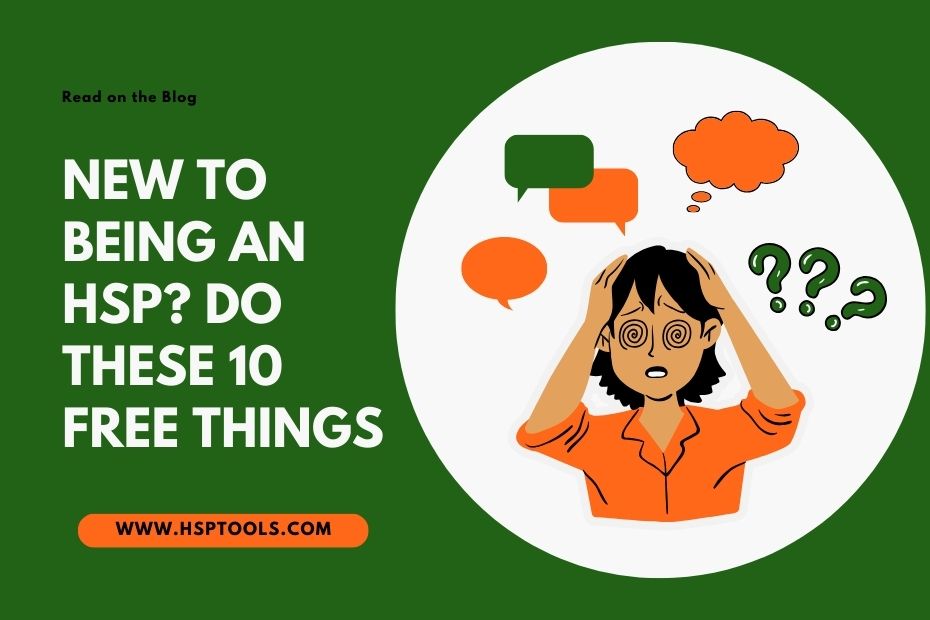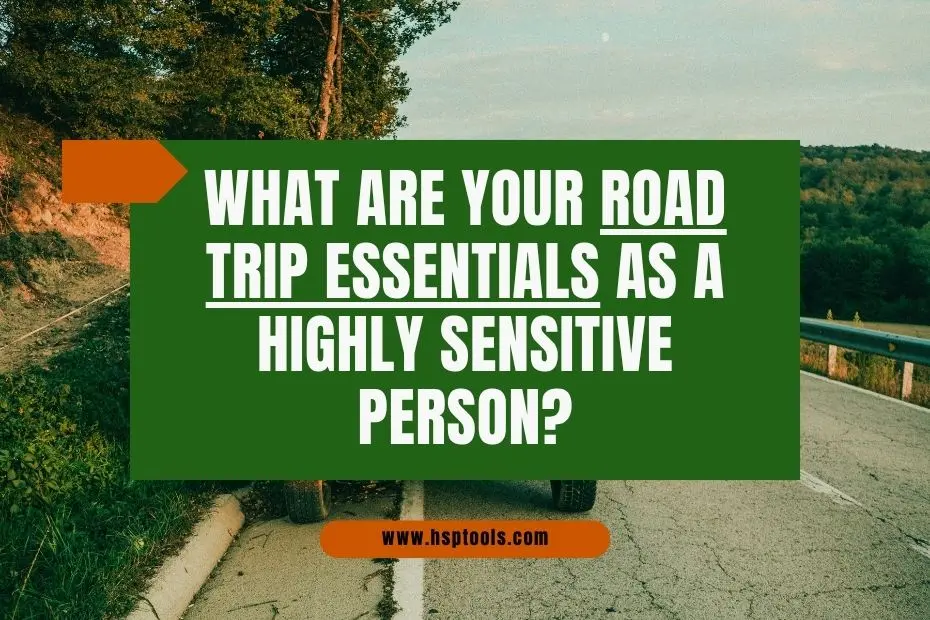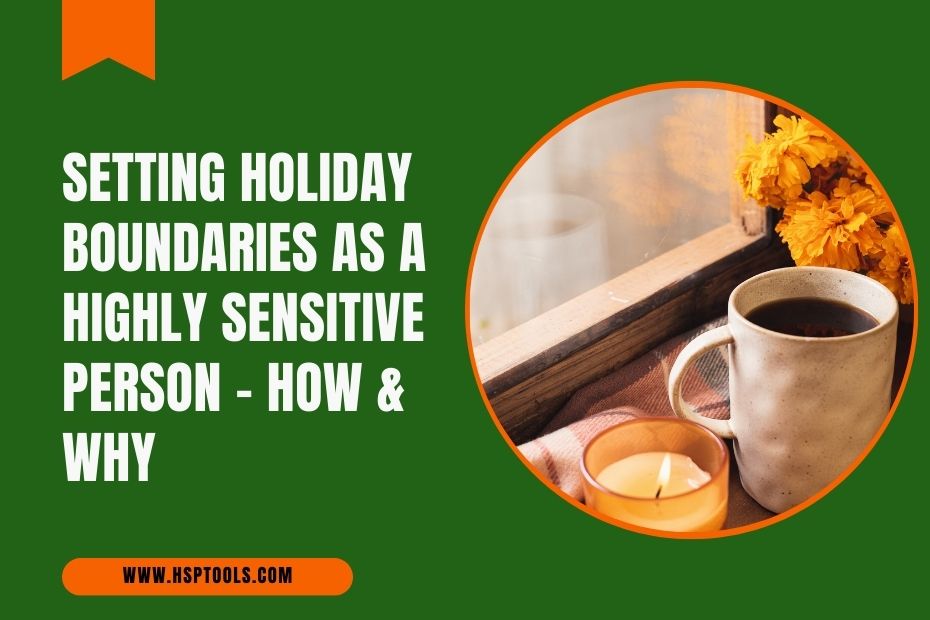14 Health-Related Highly Sensitive People Problems

We all have problems.
And due to being born with a sensitive nervous system, highly sensitive people suffer an extra dose of problems.
This extra dose is what we like to call “sensitive people problems”.
These are issues that you, as a Highly Sensitive Person (HSP), struggle with because you’re born sensitive. Not because something traumatizing happened to you but because high sensitivity makes you prone to suffering these problems.
And if your upbringing and adulthood journey wasn’t as supportive to you as an HSP, then you may have struggled with these 14 Highly Sensitive People problems.
14 Health-Related Sensitive People Problems (According to Research)
This list of problems is based on this research by Jewer 2005.
1. Anxiety
Anxiety manifests itself through feelings of fear, worry, and physical discomfort as a result of these negative feelings. As a highly sensitive person, how deeply you process information makes you highly prone to becoming an anxiety victim.
So if you ever find yourself a victim, learn how to reduce anxiety in this free masterclass. It will teach you holistic techniques to help reduce anxiety with results showing in as little as 2 weeks.
2. Depression
Depression is a mental illness that affects the way you feel, think, and act. It’s associated with the heightening or lowering of a person’s mood. And there are different types of depression.
As a sensitive person, there’s a chance you’ve been accused of having mood swings. This is a result of your sensitive nervous system reacting faster and more strongly than that of a non-sensitive one.
And this issue could lead you to suffer from depression.
3. Insomnia
Insomnia is when you’re unable to fall asleep or stay asleep.
It’s when you wake up earlier than you should and can’t get yourself back to sleep. And these sleep issues are highly common among sensitive people.
So if you struggle to sleep or stay asleep, check out these sleep apps for HSPs. Because there’s nothing wrong with using a tool to improve your sleep.
4. Attention deficits
Having attention deficits doesn’t mean you have Attention-Deficit/Hyperactivity Disorder (ADHD), even though some sensitive people have it.
What it means is that you have difficulty paying attention, sitting still, remembering things, following directions, staying organized, etc.
And the reason for these attention deficits is how much you take in as a sensitive person. Because you take in a lot more information, you have a lot more to process and hence find it difficult to focus on something else.
5. Headaches
This is one of the most common Highly Sensitive People problems. And it’s normally caused by the simple fact that sensitive people process information deeply.
So if you’re taking in too much information from your environment, you have a lot of information to process deeply. This, in turn, causes you to suffer from sensory overload and headaches more often than your non-sensitive friends.
Do you struggle with Sensory Overload? Enrol in this free masterclass to learn how to reduce it.
6. Chronic Pain
Chronic pain is pain that stays with you past the time of recovery or alongside a long-term illness. This pain affects your work, eating habits, and your everyday life.
And because as a sensitive person your nervous system is always on overdrive, you may find yourself a victim of chronic pain.
7. Fatigue
Ever wonder why you’re so tired all the time? Like day-in-day-out, you’re constantly tired and wanting to sleep? That’s fatigue.
And while everyone can suffer from fatigue, it takes very little for a sensitive person to be fatigued.
Also, it’s highly likely that sensory overload is the reason behind your mental fatigue. And as for physical fatigue, blame it on the fact that your body isn’t set up like everyone else’s.
8. Social Phobia
Sensitive people don’t like small talk. And 70% of highly sensitive people are introverts. So if you struggle with Social Phobia as a sensitive person, this shouldn’t come as a surprise.
Your internal wiring is set to avoid social settings at all times.
And if you don’t already know, Social Phobia is also referred to as Social Anxiety Disorder (SAD). It’s a condition that makes you afraid of meeting new people, talking to people, and being in social settings.
But just because you’re wired to experience Social Phobia doesn’t mean you can’t overcome it.
In fact, research has shown you can train your brain to reduce anxiety and overwhelming emotions. And go ahead to enjoy results in as little as 2 weeks.
9. Decreased Libido
Did you know fatigue, overwhelm, and a lack of deep connection with your partner can decrease your interest in sexual activity?
Yet, these are common issues sensitive people have to deal with on a daily basis.
So, yeah.
If you’re a highly sensitive person, don’t have an underlying condition, and have low libido, your high sensitivity may be to blame.
10. Decreased Memory
Because as a sensitive person you have a tendency to take in too much information and process it deeply, your mind can be constantly overstimulated.
This can cause distraction, and inability to focus, and can directly affect your ability to remember events.
And this is how decreased memory becomes one of the many problems sensitive people go through.
This means you can be in a position to observe every little detail around you, and yet fail to remember some important details.
11. Irritable Bowel Syndrome (IBS)
IBS is a condition affecting the digestive system, causing you to experience abdominal pain, bloating, gas, cramps, diarrhoea, constipation, etc.
And as a highly sensitive person, I don’t need to tell you how common this is because you already know.
What I can tell you is that your sensitive nervous system has a direct effect on your digestive system. This is because it’s super sensitive and any slight irritability can cause it to tell your brain it’s more of an issue than it already is.
And that’s how your body overreacts and the IBS happens; a situation that’s true for other gastrointestinal problems, including haemorrhoids.
12. Skin Problems
Being sensitive comes with both mental and physical benefits and difficulties. Because while high sensitivity is a personality trait you’re born with, having a sensitive nervous system affects both your mind and body.
This then leads to a series of bodily sensitive people problems, such as sensitivity to bacteria, fungi, parasites, etc. And this high sensitivity is what leads to skin problems such as eczema, acne, psoriasis, and more.
13. Allergies
Like skin problems are caused by sensitivity to bacteria and others, allergies are a result of someone being sensitive to allergens.
And while everyone (sensitive and non-sensitive) can have allergies, some sensitive people can have one too many allergies.
So if you find yourself allergic to substances that are considered harmless by most humans, know your sensitivity has a part to play.
14. Asthma
When you have asthma, your airways get narrow, swollen, and filled with mucus. This makes it difficult for you to breathe and you may need an inhaler to cope.
And as you may already know, anyone at any age can get asthma.
But if you have allergies, a family history of asthma, or are a highly sensitive person, you are at a higher risk than those who don’t share these factors.
So the fact that you’re highly sensitive is enough risk factor for asthma.
In the End
There are other common Highly Sensitive People problems such as bright lights, noise, overthinking, overwhelm, etc. But this list of sensitive people problems is specific to health issues you struggle with because of your high sensitivity.
And we didn’t share this list to highlight the many problems sensitive people face. We’ve shared it as a reminder that sensitive people experience life a little differently. As a reminder that high sensitivity should not only be embraced but also understood.
Because when you understand why certain things happen to you as a Highly Sensitive Person, it’s easy to find a long-lasting solution.
A solution like learning how to train your brain so you can reduce anxiety and overwhelming emotions. And many others.
***
Full Disclosure: This post contains affiliate links. This means we earn a commission when you make a purchase through our links. Please note this is at no additional cost to you, and your support helps keep this blog alive.






